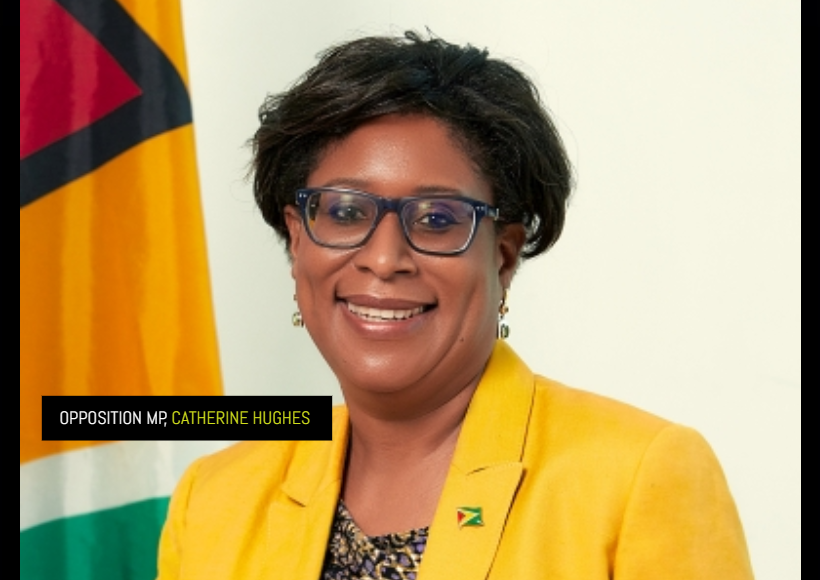Alliance For Change (AFC) Member of Parliament, Catherine Hughes, raised eyebrows today with her scathing critique of the PPP government’s failure to provide funds through Budget 2024, for the establishment of a Petroleum Commission. Notably, the APNU+AFC regime, which Hughes was part of from 2015 to 2020, is also guilty of not prioritizing the establishment of that regulatory body.
Hughes, during her budget debate speech passionately lamented the absence of funds for a commission but questioned multimillion dollar allocations to other bodies such as the Ethnic Relations Commission. She asserted, “If the petroleum commission was established, we would not have had the nightmare in which one man could take the decision to deprive the citizens of Guyana.” This pointed critique referred to the recent audit fiasco involving a government official reducing disputed costs by ExxonMobil from US$214M to US$3M without authorization to do so.
The MP underscored the need for a fully staffed and highly technical accounting department within a Petroleum Commission, arguing that such a setup could prevent a single individual from making critical mistakes that impact the nation.
Hughes’ criticism was ironic, given that in its five-year tenure, the coalition regime failed to establish such a body despite having all powers to do so. In 2017, two years after Exxon’s discovery of oil offshore Guyana, former Minister of Natural Resources, Raphael Trotman, tabled the Petroleum Commission of Guyana Bill of 2017 during the 64th sitting of the 11th Parliament. The legislation, serving as the foundational framework for the establishment of the Petroleum Commission of Guyana, was slated to undergo further scrutiny by a Special Select Committee following its second reading. But further efforts were not made for the bill to secure passage, as such the commission could not be formed.
The bill had to be re-tabled by the PPP administration that took office in 2020, and was dubbed faulty in many ways as it not only vested too much power in the minister responsible, but also failed to give the members of the committee active participation.
Hughes also addressed the government’s move towards cheaper energy through the Wales gas-to-shore project. She raised concerns about the lack of research and assessment from national institutions and questioned the feasibility of the project.
Hughes also highlighted the disparity between ExxonMobil’s commitment to spend US$1B on the 245-kilometer 12-inch pipeline and the government’s US$759 million contract for the 300MW power plant at Wales, emphasizing the absence of secure financing and a comprehensive study. The specter of burdening future generations with financial uncertainty looms large, according to Hughes, especially if the sourcing of finances for the project falls through.
Her criticisms intensified as she noted that the the gas-to-energy project is forecast to be more expensive than the Amaila Falls Hydro Project in the long run. Hughes argued that requisite studies would have exposed this fact, making a compelling case for a comparative feasibility study to determine the most prudent approach to Guyana’s future energy supply.
Interestingly, although showing preference for the Amaila Falls project, it was Hughes’ administration that crippled the project according to the PPP. Over the years the PPP has accused the coalition of purposely ignoring the project despite several pleas for it continuance which eventually led to Sithe Global, the major investor for the project, walking away from it. The company’s president had said the the project was too large to continue without a national consensus or without the support of all three major parties in Parliament at the time.
In addition, it was reported that after constant disapproval of the project, the AFC offered its support, but by then it was too late.











